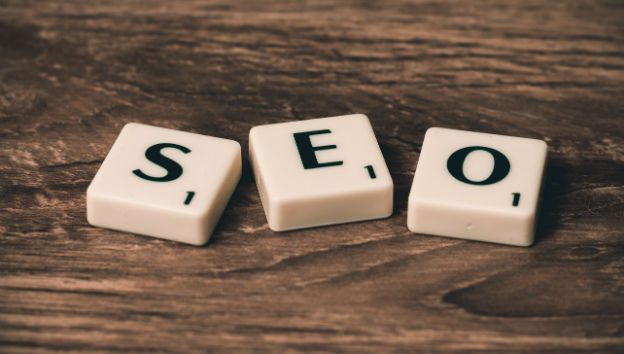Search Engine Optimisation

After some great response from a recent newsletter campaign on Search Engine Optimisation we have decided to post the topics discussed here so everyone can benefit 🙂 We cover some basic checks you can perform to doing that little bit extra which will get you ahead of competitors in search results.

What is Search Engine Optimisation (SEO)?
Google is the most widely used search engine in Europe as it delivers the most relevant results to our searches and crazy questions! Google bots crawl the internet and can analyse a website in seconds. To be at the top of the search results that matter to your business, your website must fill google’s criteria and more.
This is search engine optimisation.
Improving your SEO Part 1
5 basic Search Engine Optimisation checks
 Content writing and keywords
Content writing and keywords
Write out five keywords or key-phrases that you wish to be found for. Have you mentioned them in your text throughout the site? Each page should have min 300 words of unique content.
 Page Titles
Page Titles
Does every page have a unique title tag? Every title must be unique and relevant to the text on that page. More about page titles below.
![]()
 Social Media & Google Plus
Social Media & Google Plus
Create a google plus account and add your business. Google favors websites that are linked to their own social account. Having an active facebook account also greatly improves site visibility.
 Mobile Friendly
Mobile Friendly
A recent update to the google algorithm means that mobile friendly sites will rank higher on mobile searches. Is your site mobile friendly?
 Links
Links
Can you get more links into your website from external sources? Internal links are also vital to site optimisation.
Improving your SEO Part 2
Social media & SEO
As external links into your website become less important your social media presence and reputation is becoming a major factor in how search engines rank your business. If you have a blog post which has been shared multiple times on social media it tells google that this is good content and should be ranked highly. Google views a business facebook page which is getting likes & shares as an active organisation engaging with the public and so will improve your website ranking.

Action you can take today…
 Share buttons
Share buttons
Add share buttons to your website, blog posts & products. When these are shared on social media it tells search engines that this URL is popular. Blog posts are a great way to get people sharing your website content as well as boosting SEO for the unique content they contain.
 Social Media Accounts
Social Media Accounts
Do you have an active twitter, facebook, linked in and google plus account? These must be business pages and must be linked to your website in order to get any benefit. If in doubt call Dmac!
 Google Plus
Google Plus
Create a google plus account for your business. This is Google’s social media platform so providing your business information and web address tells google more about you.
 Google Places
Google Places
A very effective tool to have when it comes to google finding your website e.g. “Plumber, Donegal”. This will also give you more space on the Google search result page including a map, contact details and opening hours.
 Run a competiton
Run a competiton
The more followers (e.g. likes on facebook) your social media pages have, the better your website will perform. Get active with facebook & twitter, break the ice with a great competition to help get followers & then build rapport with your audience. Ask us for advice if you don’t have much experience planning a competition as we have some good tips.
Improving your SEO Part 3
Page Titles
In Part 3 of our SEO series we will discuss how to write an effective page title. A page title has long been one of the most important factors to consider when optimising a page for search engines. If you would like some 1 to 1 advice contact us

About The Title Tag
A title tag is the main text that describes an online document. Title elements have long been considered one of the most important elements in your SEO toolkit, the most important being actual content. Title tags appear in three key places: browsers, search engine results pages, and external websites.

How the page title will appear in a browser.
How to write an effective page Title
 Not too long….
Not too long….
Google will typically display 50-60 characters and anything after will be truncated. Search engines may use the keywords found in your page title so keep these within the character limit.
 Keep important Keywords to the front.
Keep important Keywords to the front.
The closer to the start of the title tag a keyword is, the more helpful it will be for ranking and the more likely a user will be to click them in search results.
 Best Format
Best Format
This is a good format when writing your page titles:
Primary Page Keyword, Secondary Page Keyword, Brand/Location
 Unique on every page.
Unique on every page.
Your page titles can have an overall theme but each must be unique to gain any value. A page on a landscaping website about garden maintenance could have the following title. Garden Maintenance and Landscaping Services in Leitrim, Greenfingers Ltd
These points are just the tip of the iceberg. At Dmac we provide professional SEO advice and services and will always give your site a free review to see what can be improved. Send us a message


 Getting the best from your Facebook page.
Getting the best from your Facebook page. Start Small - Grow Big
Start Small - Grow Big